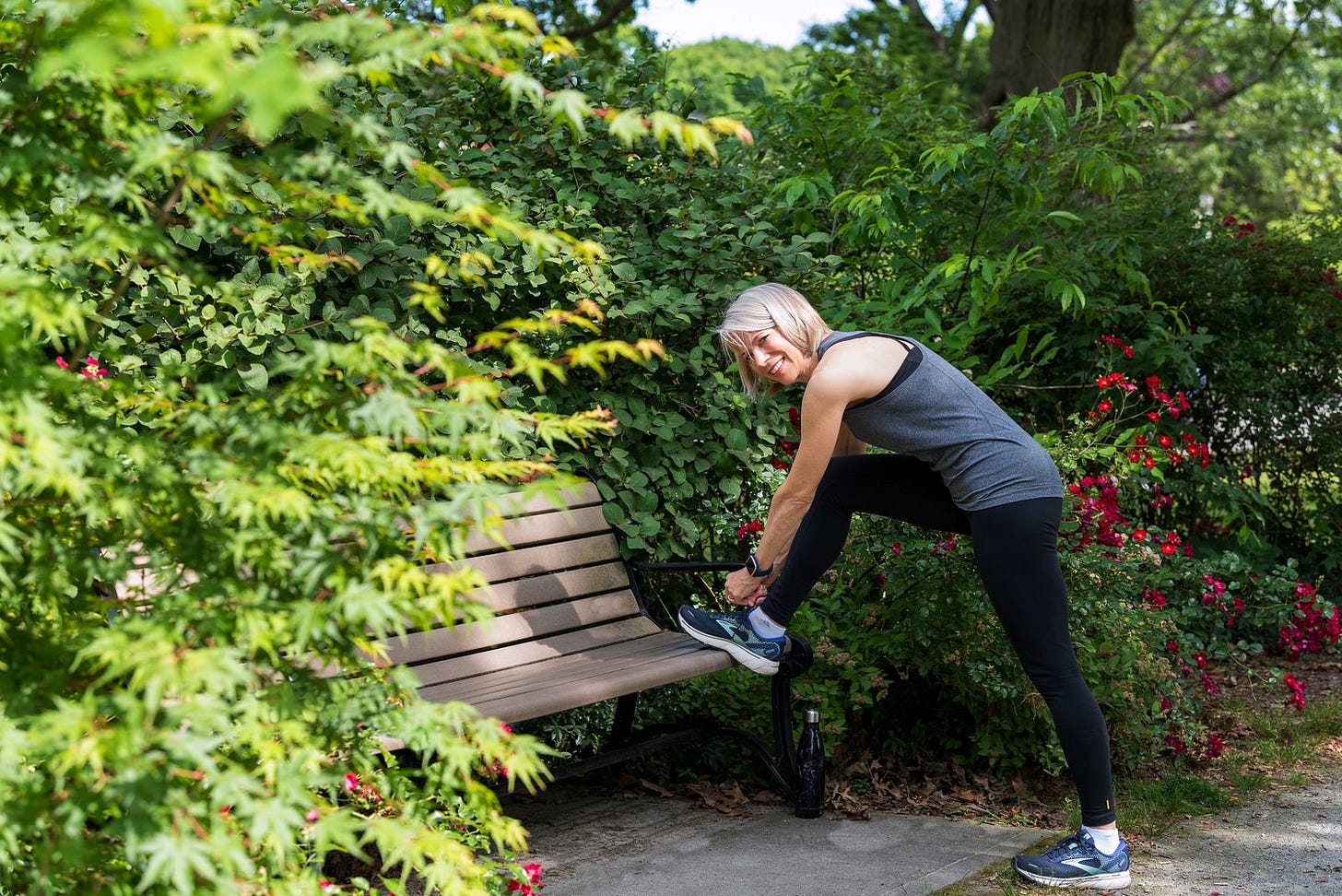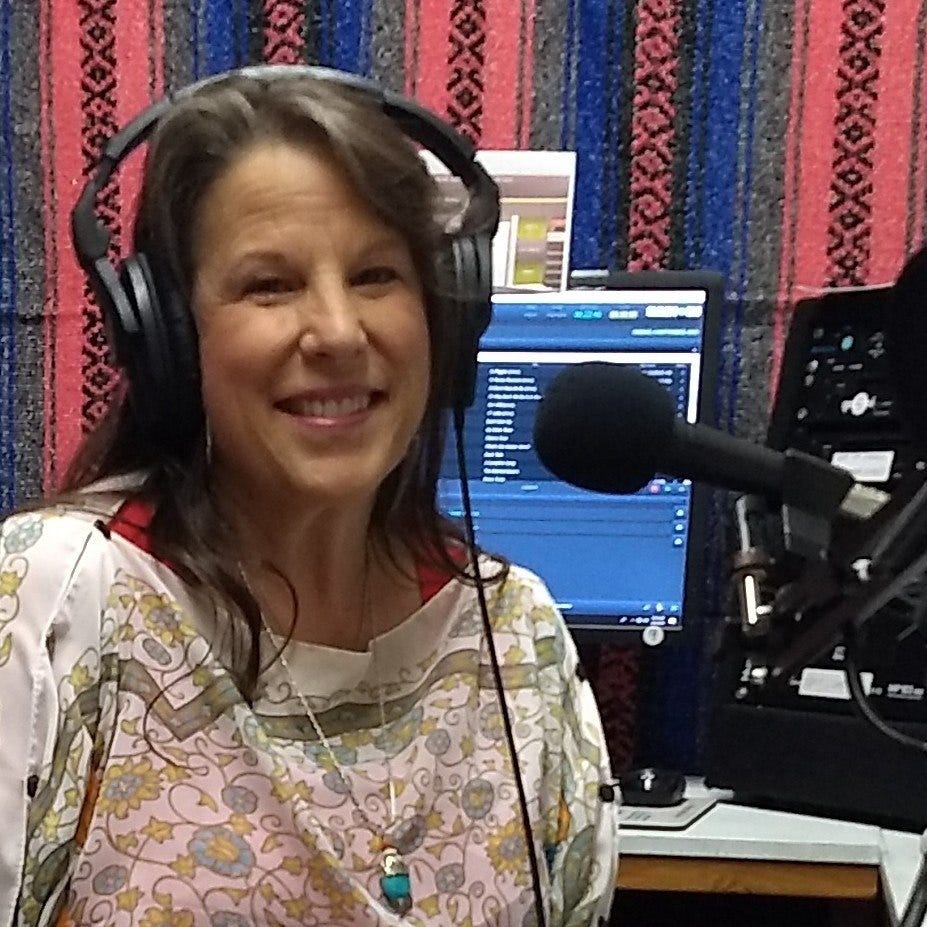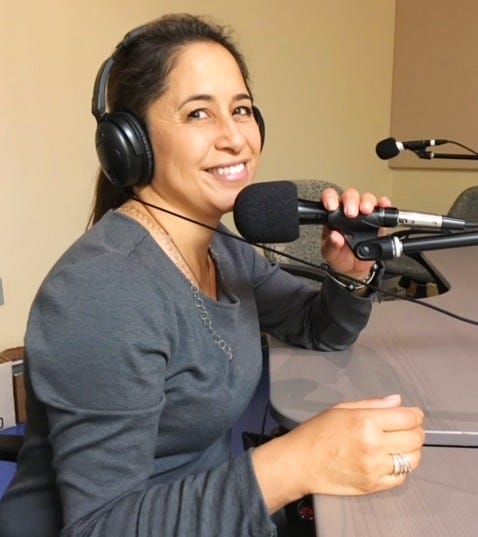Can a midlife career pivot connect you to your true purpose?
Layoffs, empty nests, and other life changes can inspire career shifts for women
When Lisa Lucca, a life coach, author and radio show host in Las Cruces, New Mexico, got laid off as a corporate project manager after 9/11, she sought direction from a life coach.
“After a few sessions with a coach, I said, 'I want your job!' and went back to school at age 41 for certification,” Lucca says. “I've loved coaching for 20 years, and it has launched my radio show.”
Mary Geffroy had a ten-year career as an attorney in Washington, DC. After being an at-home mom and facing an empty nest, she thought about what energizes, excites, and interests her. She knew that she wanted to nurture and help people, and pursue her fascination with how food fuels, heals, and nourishes the body.
She soon founded coaching business The Perfect Pear.
“This interest [in healthy food], coupled with my desire to help others, naturally led me to nutrition and wellness coaching,” Geffroy says.
Debra Sabatini Hennelly was an environmental engineer before she became a lawyer. She used her dual background to develop an advisory business in ethical leadership, compliance, and environmental, social and corporate governance. In her first engineering job after college, she learned that lawyers affected almost everything she did.
“Getting a law degree meant I could shift into roles that could help the company prevent issues and mitigate risks, which intrigued me,” Hennelly says. “I really enjoyed law school and found that my work experience gave me a uniquely helpful perspective in several classes—Contracts, Property, Torts, Administrative, and Environmental Law. As a result, I’ve recommended law school to many engineers, and I’ve also recommended working for a few years before law school. I practiced environmental law in firms for 5 years before moving in-house, ultimately pivoting out of practicing law and into corporate compliance and ethics.”
Career shifts are normal when we know ourselves better
What these women have in common is not uncommon. Many people change careers over the course of their lives, and several studies have shown that fewer than half of college graduates work in a field related to their major. While necessity sometimes steers one’s course early in life, maturing encourages discernment of our true interests and abilities. As midlife is often a time of re-evaluation, career shifts increasingly take place during the second half of people’s lives. For women, returning to the marketplace after raising children often necessitates taking a different job.
This was the case for Sue Sudbay, a Leadership Coach in Rockport, Massachusetts, who made the jump to coaching senior leaders after many years in sales and marketing executive roles,.
“I'm fortunate to be able to say that I'd accomplished many of my career objectives: big titles, scope of responsibility, compensation packages, and successfully overcoming many interesting challenges,” says Sudbay. “But something always felt like it was missing. I was giving so much of myself and was making so many compromises at home and I never truly felt satisfied. So I made the decision to stop working for a year, spending that critical time to get my teenagers through the end of high school, go look at colleges, help with applications, and to truly be present with them.
When her children moved out, Sudbay's perceptions changed as well.
"I had always thought I'd go back and get another one of those big jobs, maybe this one with global travel," she says. "But my heart was calling for something different, and I decided to find a role that would give me as much back as I gave to it. That's when I decided to coach other executives, to lean on my own experiences and learnings and to offer guidance and support to others.
After years of choosing for family, choosing for ourselves
I chose law as a career because my immigrant mother wanted me to be a doctor or a lawyer. I fainted the first time I saw blood during high school chemistry class, so she discarded the dream of having a daughter who was a physician. My choice has served me well. Lawyers are generally well paid and they solve people’s important and challenging problems. A law degree has also helped me in my career pivots, opening doors to more speaking engagements and journalist assignments.
I became a journalist when I was fortunate to be able to be an at-home mother. Now that I am an empty nester, I practice law part-time, author books and magazine articles, and host a podcast, all as a digital nomad.
Many of us fall into the trap of asking our children what they want to be when they grow up, just as adults asked us. Michelle Fishburne, a digital nomad and author of Who We Are Now: Stories of What Americans Lost and Found During the COVID-19 Pandemic, reminded me what a disservice it is to ask this early, and to assume that there is just one answer for anyone.
“The truth of the matter is most of us pivot several times in our careers,” Fishburne observes. “Sometimes the pivots occur intentionally as we evolve and grow and sometimes the pivots happen unexpectedly due to what appear to be adverse events, like getting laid-off or having to take time off to care for a loved one.”
These changes can be the opposite of “adverse,” giving us the chance to explore other avenues of interest, and income. My circle now includes newly-minted teachers, artists, politicians, activists, non-profit executives, and entrepreneurs who took those chances.
“I use the phrase ‘appear to be adverse’ because often these events turn out to be a wonderful impetus for us to pivot and experience a new path,” Fishburne says. “For me, I sometimes need an adverse event to kick me out of my nest and launch me forward. I used to be afraid of these adverse events, but now I welcome them. I mean, who wants to live in a stagnant pond? Not me, because stagnant is not interesting."
Resistance to change can be a hurdle for many who would be better served by following their passions. Marcella Fleming, a Seattle attorney, found that she could not support herself on a teacher’s salary in the 1980s, so she enrolled in law school.
“My sixth grade teacher, who I was still in touch with, told me that I had always talked about becoming a lawyer,” Fleming remembers. “So, perhaps it was my destiny and I just needed time to realize it.”

The key to life satisfaction is finding one’s passion. I worried that I was too much of a dilettante to focus on one area of interest, but have found happiness in pursuing several tracks that bring me joy. Lucca agrees with this approach.
“I've found whether by circumstance or by choice, those who experience a career shift midlife are often answering a call connected to their purpose,” she says. “It can be so rewarding.”
“It has been a wonderful journey that I do not regret,” Geffroy shares. “I have learned so much about nutrition, starting and running a business, and myself. I am stronger than I thought I was, and I am no longer change-resistant. I have had a complete mind-shift from reluctance to trying new things, to one of embracing new things. There are so many people out there trying to make a positive change in the world and I am thrilled to be associated with them in even the smallest way. I have a lot to learn, figure out and do, and I look forward to it all!”
Sudbay agrees that the midlife shifts can lead to our most rewarding experiences.
"I felt appreciated — and, dare I say it, loved — plus it had the added bonus of complete flexibility, which I had never had in more than 30 years," she says.
"If only I'd listened to my heart's calling sooner.”
Maria Leonard Olsen is a divorced mother with two adult children, an attorney, author and podcaster in Washington, D.C. She is the author of 50 After 50: Reframing the Next Chapter of Your Life. For more information about her work, see www.MariaLeonardOlsen.com.
We may receive commissions from some of the product links. All products and services are reviewed independently by our writers.









